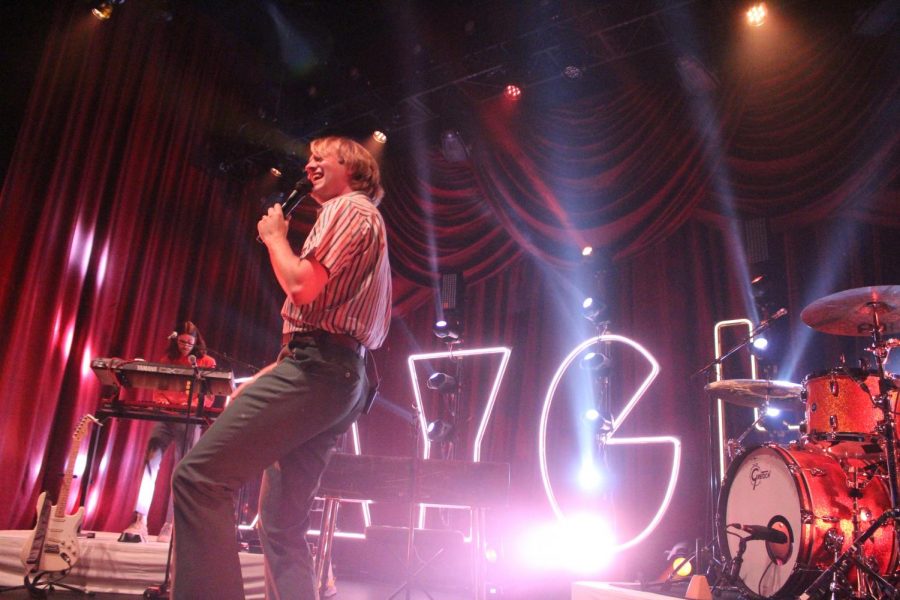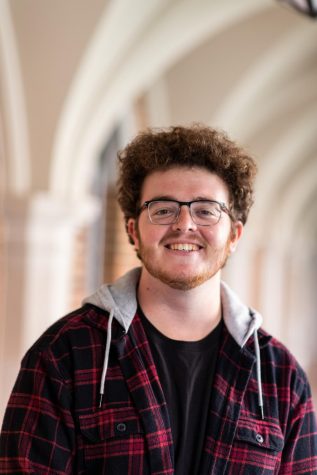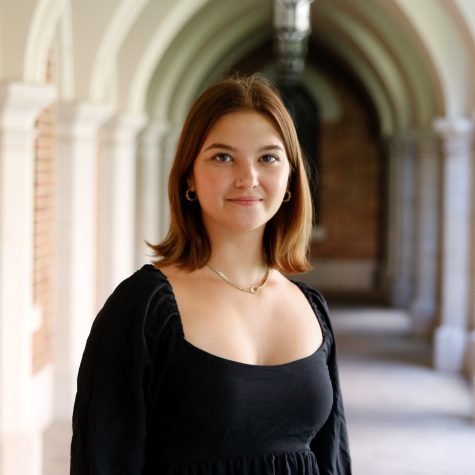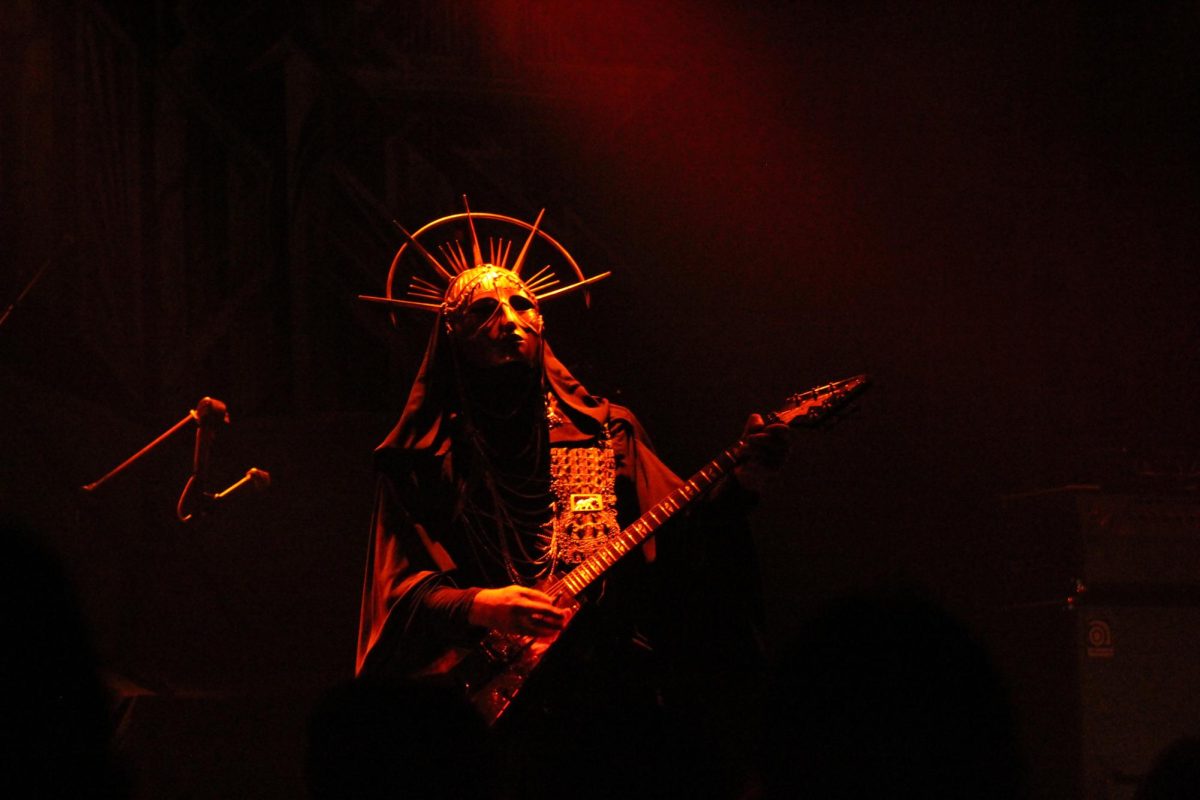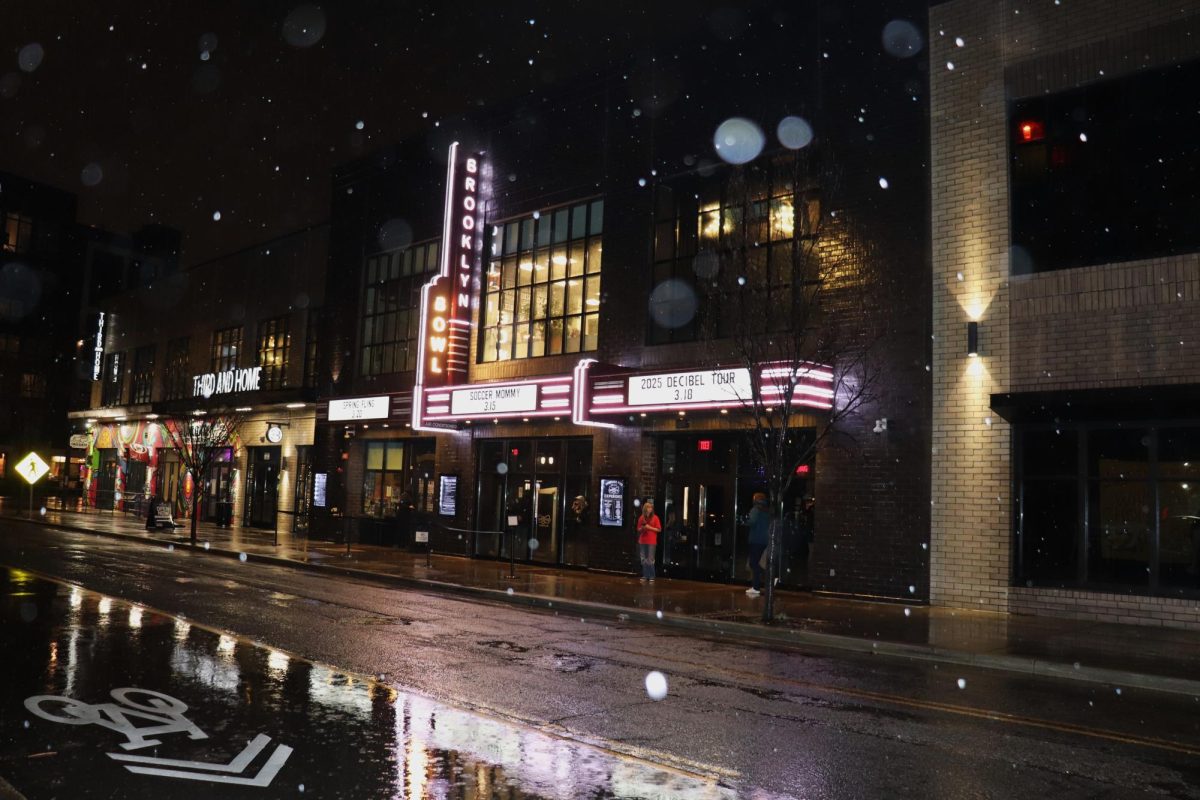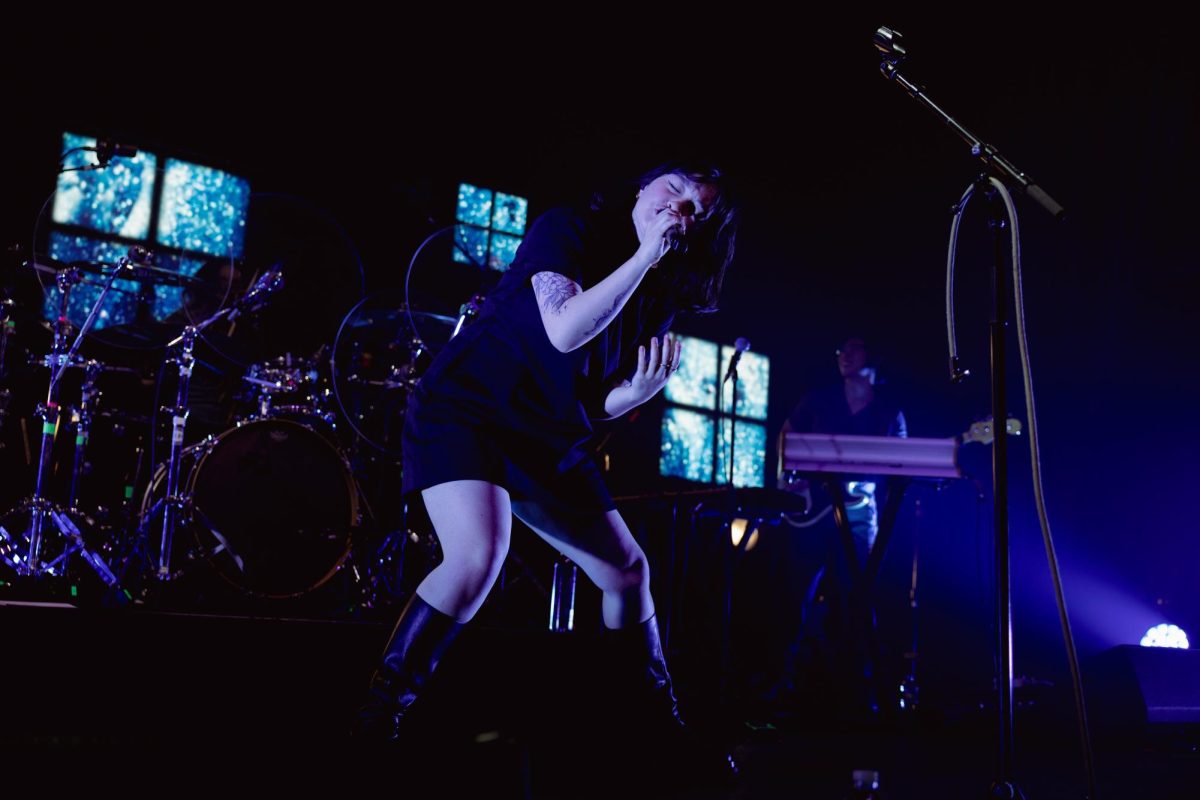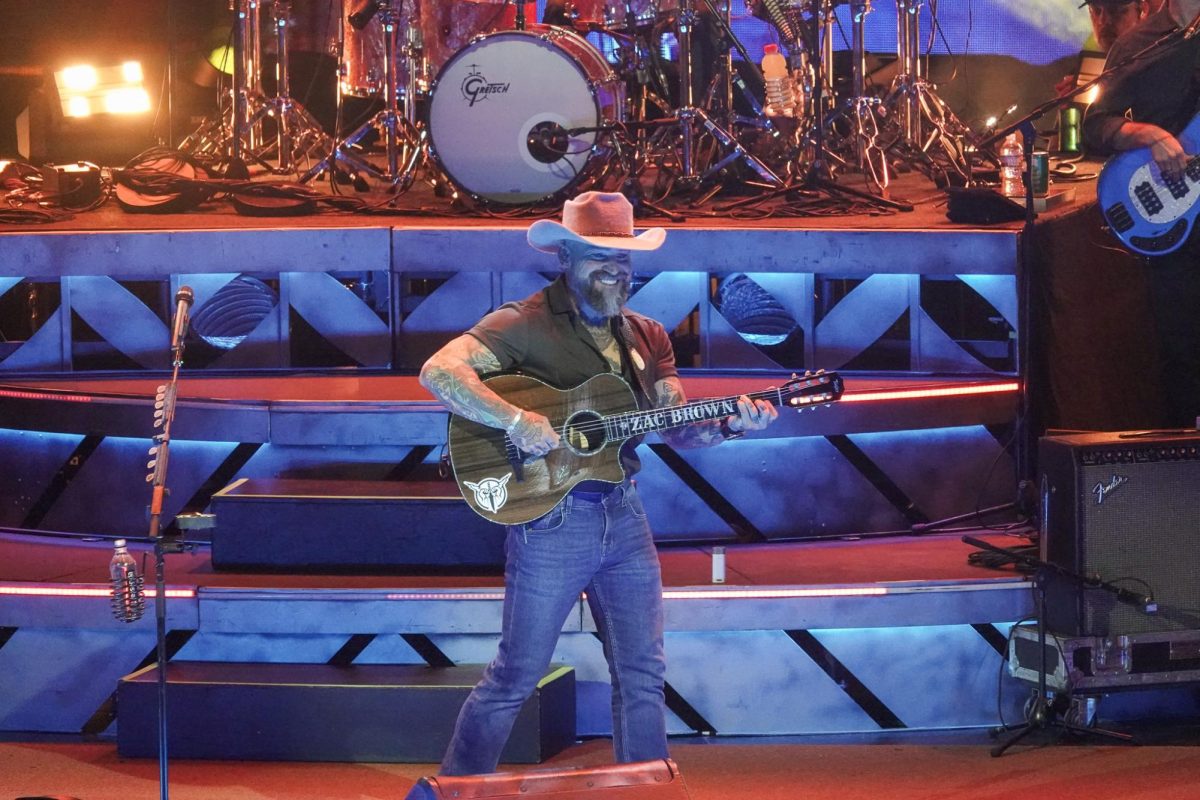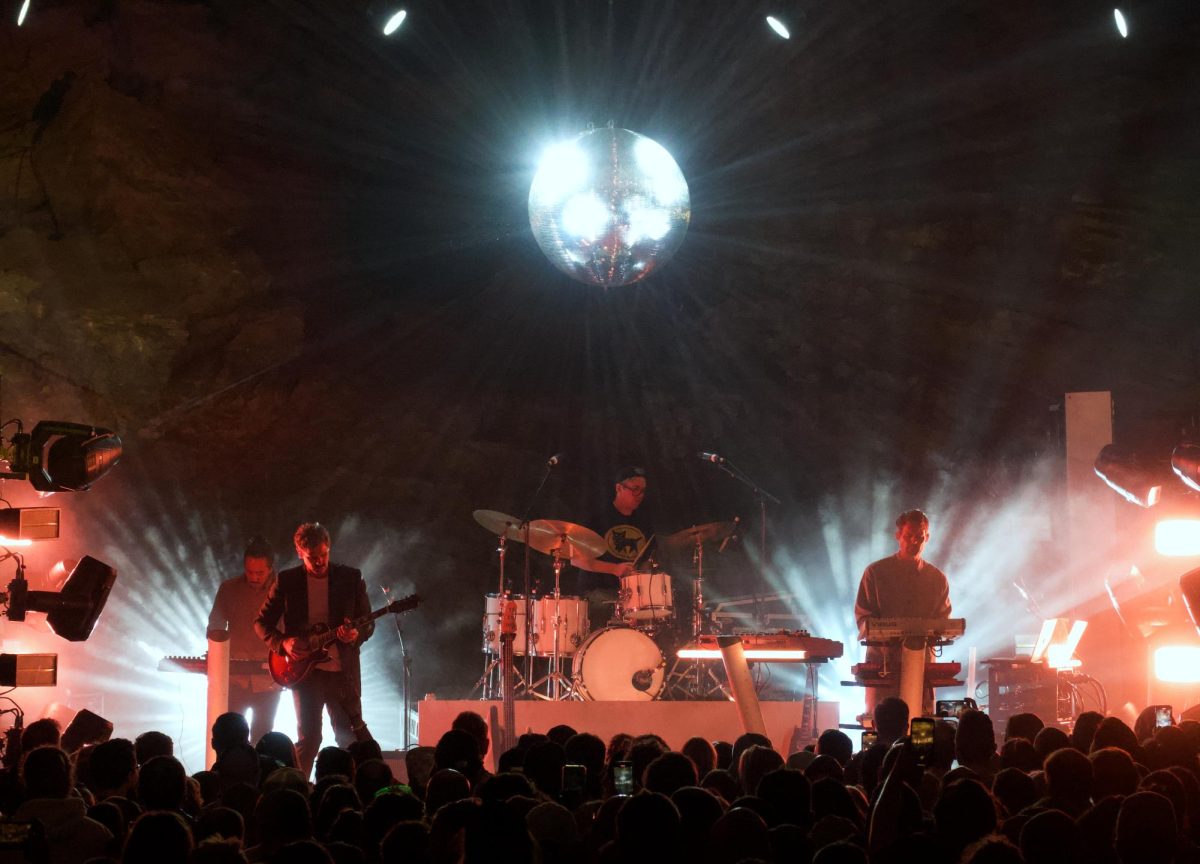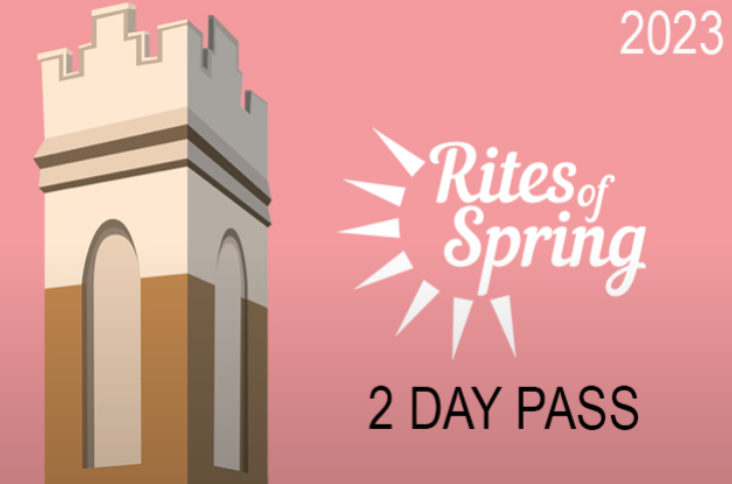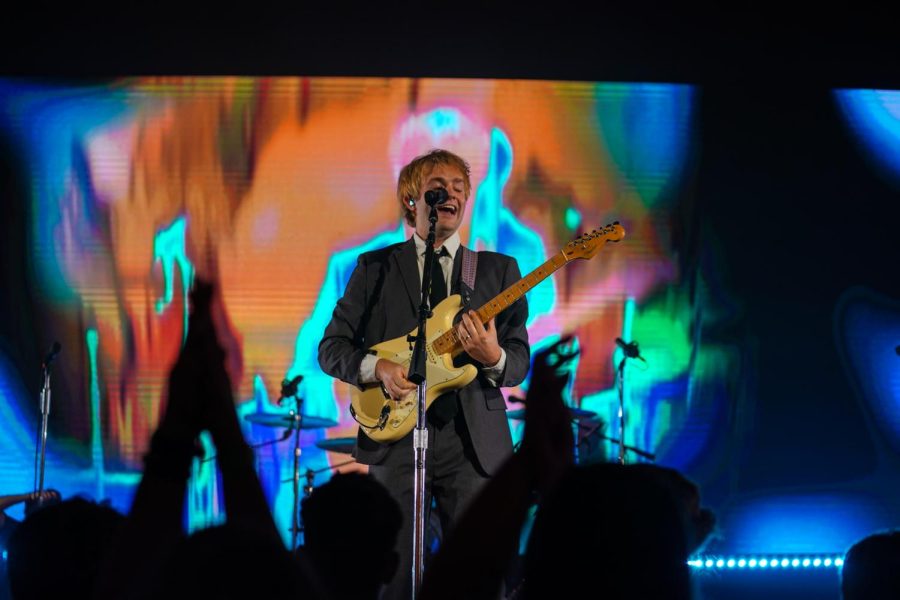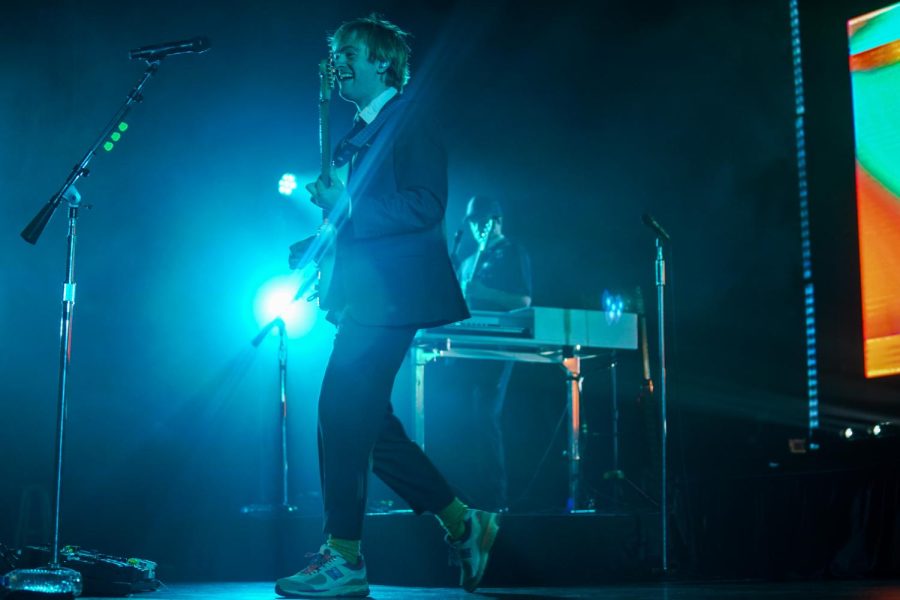Halfway through Dayglow’s set at the Brooklyn Bowl on Oct. 6, a family near the back of the crowd held up a large cardboard sign with “It’s my 12th birthday” printed in thick Sharpie.
Lead singer Sloan Struble noticed it immediately and directed the entire crowd’s attention to that lucky tweenager, asking us to sing “Birthday birthday birthday Caleb!” at the top of our lungs before continuing to the next song.
This is the best possible way to describe the pure good vibes and euphoric energy that permeated Dayglow’s Wednesday night crowd. And of course, major kudos to this kid with phenomenal music taste who chose an indie pop concert on a school night as his birthday gift.
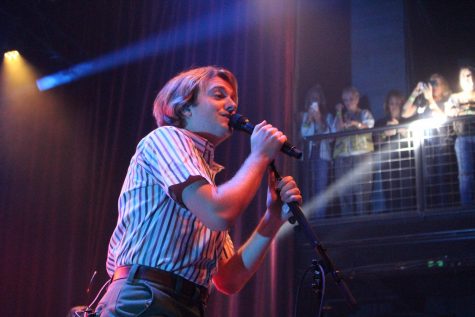
Dayglow, known primarily through frontman Struble, began an insanely fast rise to stardom in 2019 with the release of debut album “Fuzzybrain.” Since then, Struble has only seen upward momentum, with two tracks from that album garnering more than 100 million Spotify streams and the lead single from his 2021 album “Harmony House” weighing in at just over 40 million.
This well-deserved popularity comes from every track’s easy listenability, catchy lyrics and bouncy, uplifting beats. Indie pop has always walked a treacherous tightrope with the various genres it gets its inspiration from, and Dayglow manages to embrace 80s synth pop influences without falling too far into the painfully stereotypical image of a neon highway sunset in Los Angeles. Even when Struble does lean more heavily into classic synths—on tracks like “Crying on the Dance Floor” and “Close to You”—his lyrical positivity resists the trope, and you just can’t help swaying along. We once described his music as “bedroom pop, but if the artist wasn’t depressed.” Make of that what you will.
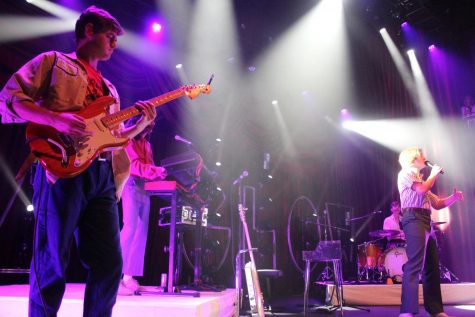
Now that we’ve had the pleasure of seeing Struble stride onto the stage in typical indie boy garb (a colorful striped button-down), we can attribute another aspect of Dayglow’s irresistible vibe to Struble himself. His charisma on stage—dancing, engaging the crowd with sing-alongs and even wielding a cowbell at one point—consumed audiences in the pit, on the sidelines and even in the upper balcony levels (pun intended). The crowd at the Brooklyn Bowl, ranging from Urban Outfitters indie teens and our lucky 12-year-old to fans his parents’ age and older, truly represented the diverse pull of Struble’s music. His ability to bring in such a wide range of listeners emphasizes his unique hold on the genre, bringing to mind modern contemporaries like Still Woozy and COIN.
Struble powered through a 17-song setlist without breaking a sweat, switching effortlessly between electric guitar, acoustic and keyboard. He covered almost the entirety of “Harmony House,” opening with the infectious album opener “Something,” and pivoted often, singing not only his first album’s mega-hits—like “Hot Rod” and the TikTok-famous “Can I Call You Tonight?”—but also slower jams like “December” and “Dear Friend,” (which, unpopular opinion, has Disney adult energy). While some slow-moving tracks from the new album had us hesitant at first, Struble somehow managed to invigorate them all, inexplicably galvanizing the crowd to mosh to the rhythmic sway of “Woah Man.” We really didn’t want to let that go.
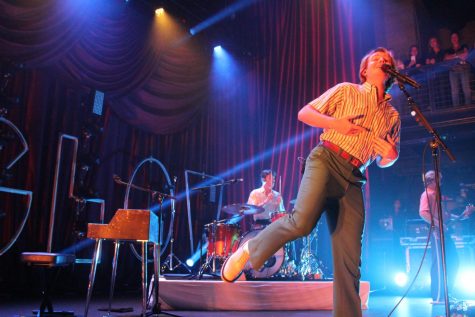
The true highlight of the night, aside from birthday chants and people holding up their iPhones with “gay rights!!!” written in large flashing text, was Struble’s encore performance. He and the rest of the band ran back onstage, still brimming with energy, and busted into a chill, laidback performance of Tears for Fears’ iconic 80s single “Everybody Wants to Rule the World,” with Struble’s more modern vocal style transforming the rising and falling chorus into something pleasantly anachronistic.
Then, as we not-so-secretly hoped, a near-seamless transition into “Run the World!!” made it obvious just how 80s-inspired Struble’s music strives to be. The lights show, drum solo and limitless energy Struble continued to bring to his audience, even after the performance seemed to be over, demonstrated a mastery of both his art and the stage that few have at his age. Because, if we haven’t mentioned, he’s only 22. What are YOU doing after you graduate?

